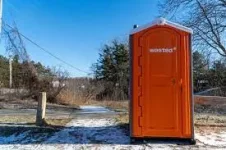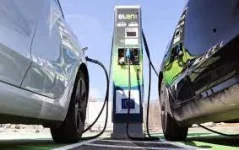Prefacing my comment, I've been driving for 3+ decades, I'd estimate having personally driven 1/3rd of a million miles and into or thru almost every state in the lower 48. I've done numerous cross-country or otherwise long range interstate trips. I'm very versed in route planning, 10-12 hours (average) and up to my personal best a 17 hour days DRIVING a vehicle, and have slept in my vehicle (front seat reclined, not reclined, and laid prone in back of SUV with sleeping bag and pillow).
A few notes from experience, comparing to realistic EV performance.
1. Time: Long drives are tiresome and require good hydration, restful sleep, and minimizing detours and wasted time stopped. Every 10 minutes sitting stationary, is 10-15 miles not traveled, or cuts into restful hotel sleep. That adds up quickly.
2. Miles and stops, for a 2000 mile trip. With a ICE your trip can be as direct as possible with minimal detouring for fuel. Ideally a 2000 mile trip in a ICE vehicle with a 400 mile range, will require about 5 or 6 stops for fuel and 28 hours at an average of 70mph. Stopping about every 5 hours to refuel, which is a natural bathroom break interval anyway. It happens to work out pretty well in that regard. That time/distance, represents about 2 overnight stays. Refueling time is about 5 minutes each so about 30 minutes, which can overlap with bathroom and snacks purchases. So refueling time is almost nothing if done combined with bathroom and snack stops.
With an EV, you're looking at 1/2 the range, so double the stops. Stopping every 2.5 hours for an hour to recharge would be extremely time inefficient. Three overnights, when charging possibly overnight but I'm not sure how that works with occupying a charger beyond the charge time. I suspect you'd have to move the vehicle when it's charged, therefore interrupting resting time. One could possibly use some of that time efficiently, getting a meal for instance, but it's not long enough to really sleep. Regardless, for 10-12 stops at an hour each, that's effectively adding another full day of travel. That doesn't factor any wasted time/energy driving a detour to find a charging station, or if it's occupied, or broken...
Additionally, whereas fuel stations are extremely efficiently located right on the roadways in almost every direction, even if we accept a nominal 10% worse distance/time efficiency detouring for EV charging stations, on a long trip as this example one would add 200 miles and 3 hours additionally just getting recharged. Terribly time/energy inefficient IMO.
What would be a 28 hour ICE journey, with 2 overnight stays, would be about a 45 hour drive and 3 overnight stays in a EV.
3. Rest: I've never gotten good rest in a vehicle at a rest stop. The light, the constant noise, the fear of being robbed and sleeping "with 1 eye open" and so forth is not restful. Sleeping upright is not restful. Sleeping prone in a car, absent a real mattress, is about like sleeping on bare ground and not restful. It's sleep, but barely.
EVs seem to me to be a very niche ownership, generally dense upper-class sub-urbanites with a place to charge it at home or work, who also have an ICE vehicle. As for long range commuting or long road trips, I think it would be foolish to try a long trip in an EV, if you're on any type of schedule or destination oriented journey.
4. Breaking down: In a common ICE, there's mechanics and parts in all minor and major cities across the nation who can fix it with near immediate parts availability. On occasion there might be a 1 day delay to get parts.
In an EV, you're out of luck. Nobody can fix them and you're not getting parts timely. You'd have to probably rent a car and transfer all your luggage and continue in a different vehicle.


